MALIKA ZARRA / Malika Zarra Mixtape
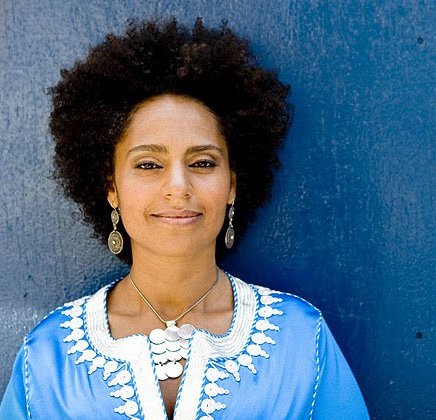
I’m Malika Zarra. I’m a singer born in Morocco and I grew up in France. My music is really rooted in traditional Moroccan music, because I listened to a lot of this at home.… Growing up in France, I was surrounded by Western music. And then I started being interested in jazz. Now my music is a mix of all this.
—Malika Zarra
If early Weather Report had been acoustic and featured a female vocalist, this is what they might have sounded like. Some desert “cool” ish, Malika’s voice floating like heat across the sand, wavering like a mirage, enticing the listener to draw nearer, heard as if in a dream—distinct yet elusive. She doesn’t so much grab you, rather she seduces the listener with tantalizing musical caresses.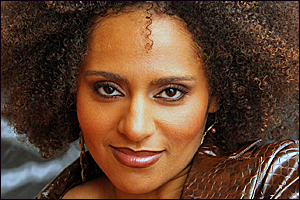
Zarra’s vibe is one of those quietly seductive enticements you see in Hollywood dramas when some exotic woman comes along in a dimly lit place and you are willing to bet you life this is what you’ve been looking for all your life. The difference is Malika’s angelic tones are neither make-believe nor fantasy.
This is a strong woman drawing on her Moroccan roots to create a music that crisscrosses sonic frontiers and cultural boundaries. Born in Morocco, educated in France, advanced study in New York, this is an aural definition of Afro-modernism: multi-lingual, multi-metropolitian, singularly fused and focused in how her diverse experiences and heritages combine to produce fantastic fruit from her musical tree.
[Arnie Lawrence] was the first person who encouraged me to explore more of my Moroccan heritage and to only sing with that ensemble in Arabic and French. I was surprised that an American person would be interested of knowing more about this culture while I grew up learning to hide it. It showed me clearly that it's a big plus for me to have this other background.
—Malika Zarra
She credits jazz with giving her both freedom and direction: the freedom to include everything, all her experiences, every bit of her heritage and at the same time providing a direction that gives order and structure to a creativity that could easily have devolved into chaos and cacophony. You can hear that these sounds are not just happening willy-nilly, recognize that the band knows what they are doing. Even when Malika is exploring uncharted territory she has an inner guidance system that helps her craft open-ended explorations into a finished artistic piece.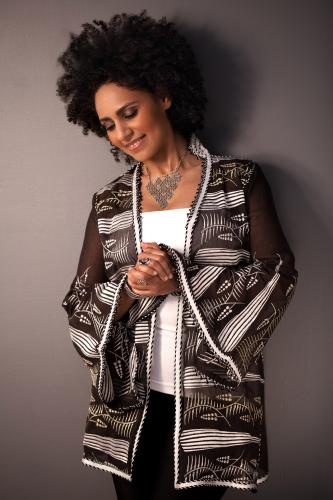
What I particularly like is the calm at the center of the music. Pieces of percussion spin and whirl but are anchored by bass vamps, sort of like a caravan crossing the Sahara. No highways, no road markers and yet definite destinations that you can only find by going there. The compass is Zarra’s voice, her inner orientation, the way she mixes those different influences and tongues, the Berber and the French, the Arabic and the English, specific ethnic rhythms all contained within the wide open framework of jazz.
Check out how clean the engineering is, mixed with voice on top, followed by bass and hand percussion, with the other instruments up under supporting like a desert zephyr beneath a flying carpet.
Malika has two albums. In the Mixtape I’ve reversed the order: selections from Berber Taxi (2010) precede the tracks taken from On The Ebony Road (2006). To my ears Berber Taxi is the more developed approach in that it fully realizes the fusion of creating one sound out of many influences while at the same time forwarding a distinctive identity.
Zarra’s music is no easy achievement. There are a number of musicians plowing the same territory. I think Malika is more successful because paradoxically she is the least tied to any one particular influence.
Stylistically, of the four cardinal elements (earth, water, air and fire), Malika’s music is air music, highly intelligent; music that has been thought about but not over-thought. Malika does not go in for simple earthy charm, nor all consuming fiery intensity, and certainly not overwhelming passion that washes over and obliterates intelligent rumination. Indeed, while each element has its strength and weakness (all that exists has contradictions), at the same time everything that exists has its own identity. I’m trying to get at what is at the core of Malika Zarra’s music that attracts me so.
The easiest way is to explain that there is a big difference between analytical thinking and deep meditation. While this music is fiercely intelligent, I think it is more accurately identified as meditative. Malika is the sound of new Africa: urban, multi-cultural, diasporic, at home in the western world even as it celebrates an ancient existence renewed within modern conditions. Culturally new Africa is both a calabash and a magical herb.
As a calabash, Africa can carry and contain anything, everything, even the cultural attributes and orientations of Africa’s historic oppressors. Although Africa (both continental and diasporic) contains more languages than any other continent, it is also home to vast swathes of French, English, Portuguese, Spanish plus stretches of Dutch and even a little Italian and German. So Africans who are Xhosa might be intimate with Dutch or English, Africans who are Bambara deeply know French, and so forth. But the reverse is not true. What English-speaking educational system includes mass teaching of Yoruba?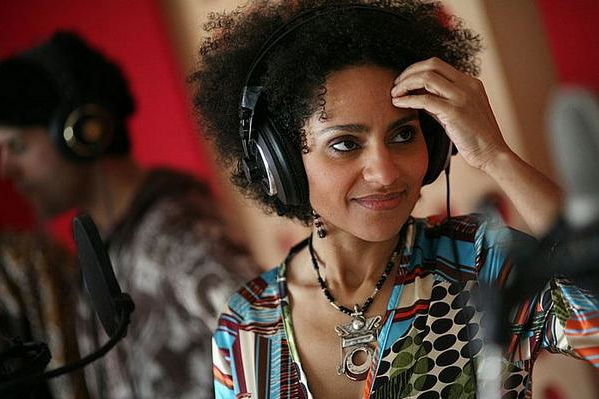
What I’m saying is that Malika’s music is much more sophisticated than mono-lingually produced music. She knows her heritage and she knows other realities, and she can easily code-switch between those various influences and experiences. Her view of the world is more multi-faceted, richer, and ultimately of more versatility.
As a magical herb there is some root stuff that transforms everything it consciously touches, indeed, also Africa also transforms whatever touches it regardless of whether the touch is conscious or unconscious/subconscious. In Malika’s music while you can hear diverse elements, you also simultaneously and inescapably sense an African heartbeat/ing, being, an African essence giving a certain élan, an identifying marker. Malika Zarra’s music has that African DNA.
So she is both something else and herself. You can hear Europe and America, but you hear it as told by an Africa and hence there is a worldview that is wider than the average eye can see, the western mainstream mouth can sing. Or, perhaps, that is another and more accurate way to describe her. One mouth, many tongues, an indigenous born African who is a world citizen. Heyyyyy, can you dig it?
—Kalamu ya Salaam
Malika Zarra Mixtape Playlist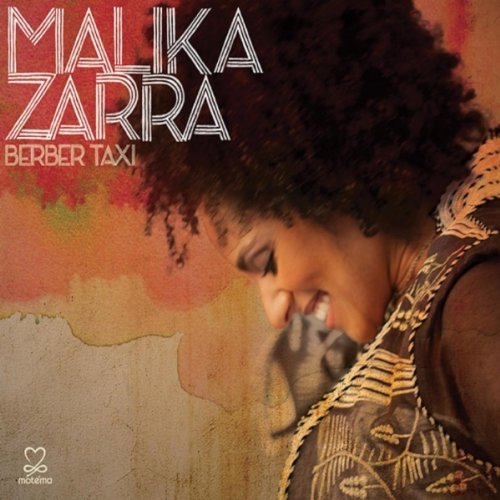
Berber Taxi
01 “Houaria”
02 “Issawa's”
03 “Woman”
04 “Leela”
05 “No Borders”
06 “Tamazight”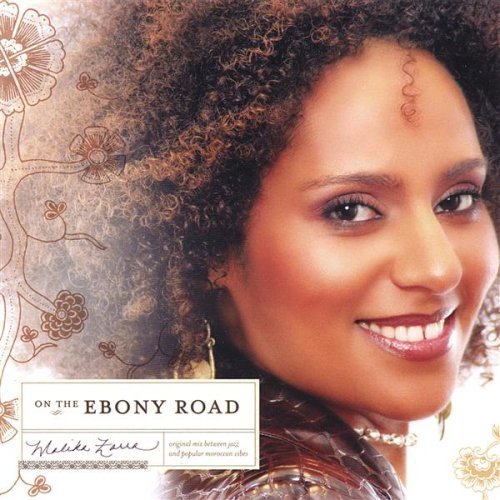
On The Ebony Road
07 “Run”
08 “Pouvoir”
09 “Your Jewel”
10 “Joky Heart”
This entry was posted on Monday, August 8th, 2011 at 2:26 am and is filed under Contemporary. You can follow any responses to this entry through the RSS 2.0 feed. You can leave a response, or trackback from your own site.
One Response to “MALIKA ZARRA / Malika Zarra Mixtape”
Leave a Reply
| top |